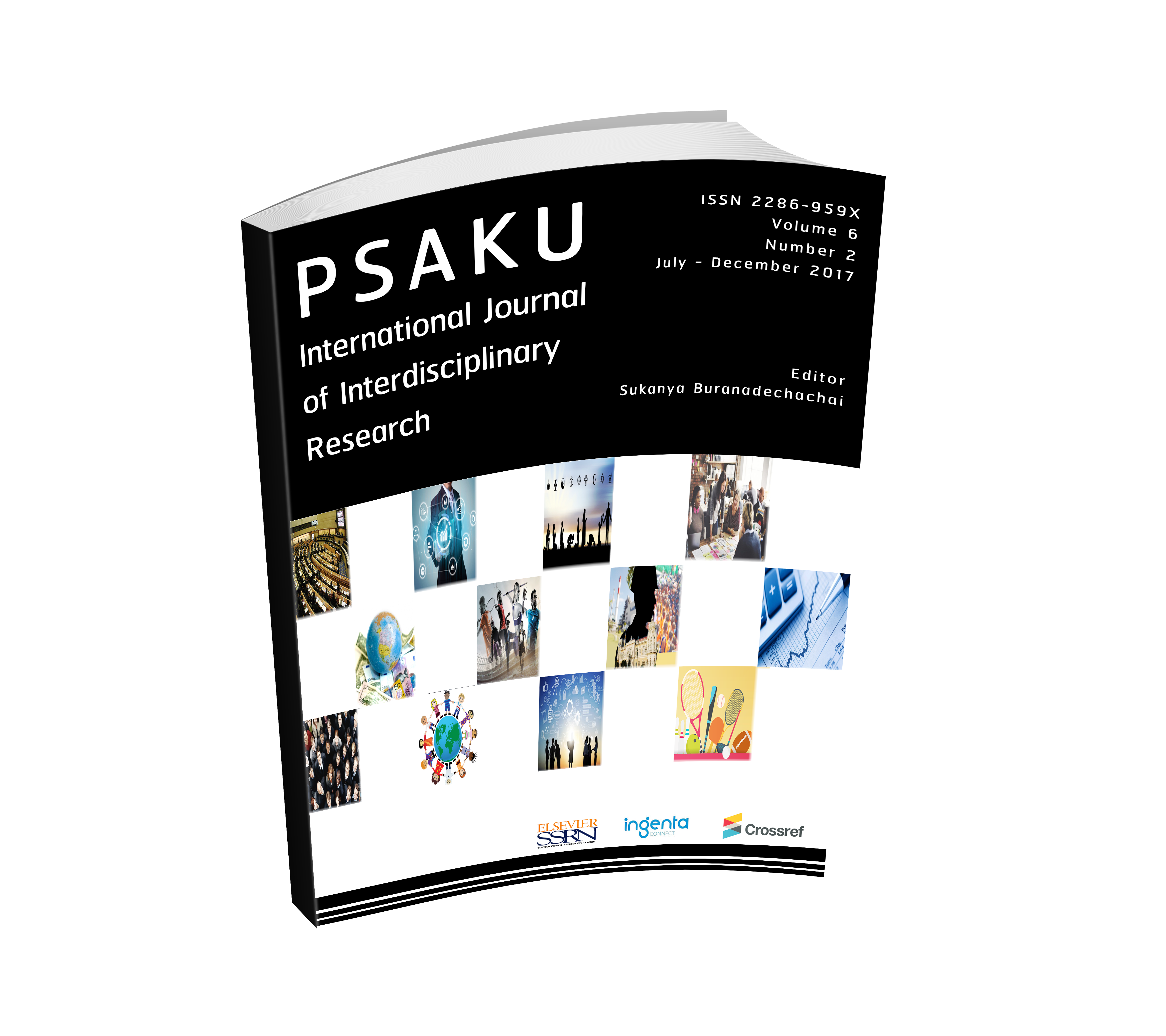Potential of Ecological Resources and Ecotourism Destination Management: A Case Study in Koh-Mak Community, Southern Thailand
Keywords:
Potential of Ecological Resources, Ecotourism Destination Management, Koh- Mak Community, Sustainable Tourism DevelopmentAbstract
Conserving the biodiversity richness is the paramount of the development of sustainable ecotourism and destination management. In Southern Thailand, Koh-Mak Community is one of well-known ecotourism destinations within Phayun District within Phattalung Province. Local people livelihoods in Koh-Mak community based on the quantity and quality of fishery and agriculture production including their community-based ecotourism (CBE) ventures. This study aimed to assess the potential of ecological resources within the Koh-Mak ecotourism destinations for providing the practical guidelines of the sustainable ecotourism practices. The mixed research methods were applied in this study by using questionaires by quota sampling of the total 337 research participants with semi-structured questions for obtaining their opinion of CBE ventures, and using the potential assessment and weighting score equation for evaluating the contributory factors of ecological resources. Researchers found that the consistency willingness of local community engagement in CBE ventures is a vital key of sustainable tourism development in long-term. The results of potential assessment shown that the Koh Mak community areas held the total biodiversity richness at 3.4, which is consisted of the highest value of aquatic ecological resources at 4.4, local vegetation species at 4, and the aquatic bird species at 3.7 by respectively. Community leader suggested that the needs of CBE improvement are reliability collaboration management and equity benefit sharing among the related stakeholders and Koh Mak community members. Community members also recommended that the establishment of the newly ecotourism routes have to consider the continuity of the sustainable management practices to maintain the potential ecological resource as well as conserve their traditional knowledge of fishery and local cultures. Therefore, the continuity of good governance is needed to develop the existing CBE ventures towards the sustainable development.
Downloads












.png)


